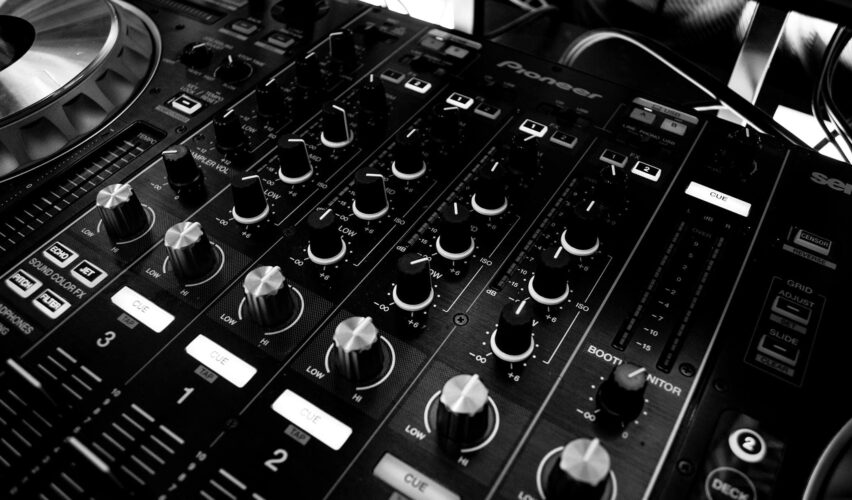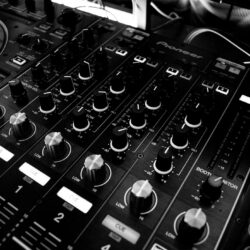Music is a universal language, weaving together emotion, culture, and intellect in ways that captivate scholars and artists alike. For students, a bachelor thesis in music offers a unique opportunity to explore topics ranging from the intricacies of music theory to the societal impact of genres like jazz or hip-hop. Crafting such a thesis, however, demands rigorous research, clear argumentation, and a structured approach, which can be daunting. Resources like Bachelorarbeit provide valuable guidance for students seeking to refine their academic projects. This article delves into how to approach a music thesis with precision, offering strategies to ensure your work resonates with both scholarly depth and creative flair. Let’s embark on a journey to transform your passion for music into a masterpiece of academic excellence.
Why Music is a Compelling Choice for Your Bachelor Thesis
Music is not just an art form; it’s a lens through which we can explore history, psychology, technology, and culture. Topics like the evolution of classical music, the role of protest songs in social movements, or the impact of digital streaming on the music industry allow students to connect abstract concepts with real-world issues. For those in musicology, cultural studies, or even interdisciplinary programs, a thesis in this field showcases critical thinking and the ability to navigate complex ideas. For example, a thesis might explore how Beethoven’s symphonies reflected Enlightenment ideals. This richness makes music an exciting yet challenging subject. A well-focused thesis topic is the first step toward a meaningful contribution to the field.
The wealth of available resources is a significant advantage. Music has a vast scholarly canon, from historical treatises like those of Rameau to modern journals like Journal of Musicology. Libraries, online databases such as JSTOR, and open-access platforms like RILM Abstracts of Music Literature provide access to scores, recordings, and cutting-edge research. However, working with such diverse sources requires discernment to ensure relevance and credibility. A music thesis demonstrates not only your grasp of musical concepts but also your ability to synthesize ideas across disciplines. This makes it an ideal choice for students eager to leave an intellectual mark.
Music’s relevance endures in modern debates. Issues like the ethics of music streaming, the role of music in mental health, or the globalization of pop culture resonate with today’s challenges. These topics allow you to engage with current discussions, showing your ability to apply musical insights to contemporary problems. A thesis in music is more than an academic requirement—it’s a chance to contribute to ongoing dialogues about creativity and society. By choosing a topic that bridges past and present, your work can resonate with both scholars and broader audiences. With the right approach, your thesis becomes a testament to the power of music.
Choosing the Perfect Thesis Topic
The cornerstone of a successful thesis is a well-defined topic. In music, the possibilities are vast, but a broad topic like “The History of Music” risks losing focus. Instead, aim for specificity, such as “How Did Jazz Influence Civil Rights Movements in the 1960s?” or “Can Music Therapy Enhance Cognitive Function in Alzheimer’s Patients?”. These questions allow for in-depth exploration while keeping the scope manageable. Aligning the topic with your interests—whether music theory, ethnomusicology, or music technology—makes the research process more engaging and meaningful.
A preliminary literature review is essential to assess your topic’s feasibility. Platforms like Google Scholar, RILM, or university library databases can reveal existing research and identify gaps in the literature. Current trends offer inspiration: the impact of AI on music composition, the revival of vinyl records, or the role of music in virtual reality experiences are all vibrant areas. Ensure sufficient sources are available, including primary materials (e.g., sheet music, recordings) and secondary analyses from journals or books. A precise research question gives your thesis direction and distinguishes it from generic projects. This step transforms your passion into a scholarly endeavor.
Originality sets a thesis apart. Consider niche topics, such as the influence of indigenous music on modern genres or the role of music in shaping national identity in post-colonial societies. These angles demonstrate creativity and may uncover untapped research areas. However, ensure the topic is academically viable—overly obscure subjects may lack sufficient sources. A balanced topic combines innovation with feasibility, allowing you to contribute meaningfully to music scholarship. With careful planning, your thesis topic becomes the foundation for a compelling project.
Structuring a Winning Music Thesis
A clear structure is the backbone of any academic thesis, especially in music, where analytical rigor meets creative interpretation. A typical thesis includes an introduction, literature review, methodology (if applicable), analysis, discussion, and conclusion. The introduction outlines the topic, research question, and structure, setting the stage for your argument. The literature review establishes the theoretical foundation, engaging with key works and debates. The analysis and discussion form the heart of your work, presenting your findings and interpretations. The conclusion summarizes insights and suggests avenues for future research.
For a music thesis, the structure might look like this: The literature review could explore foundational texts, such as Schenker’s harmonic analysis for a thesis on music theory, alongside contemporary critiques. The methodology, if included, might describe your approach, such as score analysis, ethnographic interviews, or empirical experiments. The analysis could focus on a specific problem, like the use of leitmotifs in Wagner’s operas, supported by musical examples and theoretical frameworks. Visual aids, such as score excerpts or spectrograms, can enhance clarity but must be properly cited. A well-organized thesis ensures your ideas flow harmoniously, much like a well-composed symphony.
The literature review is critical. Beyond canonical texts, consult academic journals, such as Music & Letters or Ethnomusicology, and archival materials like those in the British Library’s Sound Archive. All sources must be cited correctly, following styles like APA, MLA, or Chicago, to avoid plagiarism. A consistent narrative thread—your research question—ties the sections together, ensuring coherence. By adhering to these principles, you create a thesis that is both rigorous and engaging, reflecting the precision of musical craftsmanship.
How Ghostwriting Enhances Your Music Thesis
Crafting a music thesis is a demanding task, requiring deep engagement with complex concepts and precise academic writing. Professional ghostwriting services can provide tailored support, transforming your ideas into a polished, scholarly document that meets university standards. For a music thesis, ghostwriters can assist with intricate tasks, such as analyzing the harmonic structure of a Bach fugue or interpreting the cultural significance of reggae. This support saves time and ensures a high-quality outcome. Ghostwriting allows you to focus on your passion for music while achieving academic excellence. With expert assistance, your thesis resonates with both scholarly depth and creative insight.
A skilled ghostwriter collaborates closely with you, incorporating your input on topics, sources, or specific arguments. For example, if you’re exploring the impact of music festivals on local economies, they can source relevant data and craft a compelling analysis. Reputable services guarantee originality, delivering plagiarism-free work tailored to your requirements. Ghostwriters also offer feedback, refining your research question or suggesting improvements to your argument’s structure, which elevates the overall quality. Clear communication is key—specify your expectations, such as word count, citation style, or focus areas like music psychology. This ensures the thesis feels authentic and aligns with your academic goals.
Ghostwriting doesn’t mean relinquishing control; it’s a partnership that enhances your work. You can provide initial drafts, key sources, or detailed outlines, which the ghostwriter builds upon. Their expertise is particularly valuable for music’s interdisciplinary nature, where technical analysis (e.g., chord progressions) must be balanced with cultural or historical insights. This support is ideal when deadlines loom or the topic feels daunting. The result is a thesis that showcases your ideas with clarity and professionalism. With ghostwriting, your music thesis becomes a harmonious blend of creativity and scholarship.
Practical Tips for Music Analysis
A compelling music thesis hinges on robust analysis. Methods like formal analysis, ethnographic research, or empirical studies are particularly effective. Formal analysis might dissect the structure of a Mozart sonata, while ethnographic research could explore how music shapes identity in a specific community. Empirical studies, such as experiments on music’s effect on mood, can provide quantitative insights. These methods lend rigor to your work. Ensure your analysis aligns with your research question, such as “How does minimalism in music reflect postmodern aesthetics?”.
Case studies or musical examples bring your thesis to life. Analyzing Bob Dylan’s protest songs could illustrate how music fueled social change in the 1960s. Sources like scores, recordings, or interviews with musicians provide rich material. Combining historical and contemporary perspectives—e.g., comparing Baroque counterpoint to electronic music techniques—creates a well-rounded argument. This depth demonstrates critical thinking and makes your work stand out.
Avoid the pitfall of summarizing musical works without critique. Instead, interpret their significance and engage with theoretical frameworks. For instance, don’t just describe Coltrane’s improvisations; discuss how they challenged jazz conventions. This analytical depth sets your thesis apart from mere description. Use evidence, such as score excerpts or listener surveys, to support your claims, weaving them into a narrative that engages readers. With the right analytical approach, your thesis becomes a powerful exploration of music’s essence.
Avoiding Common Pitfalls

Even a brilliant idea can falter without careful execution. A common mistake is an overly broad research question, which dilutes the thesis’s focus. A question like “What is music?” is too vague; instead, try “How did punk rock shape youth culture in 1970s Britain?”. Early consultation with your advisor can refine your topic and prevent missteps. This feedback ensures your thesis stays on track. Clarity at the outset saves time and effort.
Source selection is another critical area. Not all materials are suitable—avoid relying solely on general websites or liner notes. Prioritize peer-reviewed journals, primary sources (e.g., Mozart’s letters), or archival recordings from institutions like the Library of Congress. Time management is equally important; musical analysis, especially score-based or ethnographic research, can be time-intensive. Create a timeline to allocate sufficient time for each phase, from research to revision. This prevents last-minute stress and ensures a polished final product.
Plagiarism is a serious concern. Even musical examples or translated texts must be properly cited, with clear attribution to sources. Tools like Turnitin can verify originality, and ghostwriters can ensure compliance with academic standards. By planning carefully and choosing reliable sources, you can sidestep these pitfalls. Your thesis will reflect both your intellectual rigor and scholarly integrity. With these precautions, your work is poised for success.
Current Trends in Music for Your Thesis
Music remains vibrant, with current trends offering fresh angles for your thesis. The impact of streaming platforms like Spotify is a major area, raising questions about artist compensation and listener behavior. A thesis could analyze how algorithms shape music consumption, drawing on data from industry reports. This topic aligns with global concerns and showcases your engagement with contemporary issues. It’s a chance to contribute to a pressing debate.
Music and technology intersect in exciting ways. The rise of AI-generated music or spatial audio in virtual reality experiences opens new research avenues. A thesis might explore how these innovations redefine creativity, referencing pioneers like Holly Herndon. This forward-looking approach demonstrates your grasp of emerging trends. It also positions your work as relevant to future developments.
Cultural and social issues offer rich perspectives. A thesis could examine how music addresses mental health, with artists like Billie Eilish leading the conversation, or how global genres like K-pop challenge Western dominance. This blend of cultural and musical analysis adds depth to your work. By focusing on a trend, your thesis becomes a bridge between music’s past and its future. Choose a topic that inspires you, and your passion will shine through.
Engaging with Musicological Methods
Musicology thrives on method, and your thesis should reflect this. Beyond formal analysis, consider historical musicology, which contextualizes works within their era, or ethnomusicology, which explores cultural practices. For a thesis on folk music, ethnomusicology could unpack its role in community identity. Alternatively, computational analysis, using tools like Sonic Visualiser, can quantify musical patterns, ideal for studying electronic music. These methods lend rigor to your work. Choose one that suits your topic and enhances your argument.
Musical writing demands clarity. Avoid overly technical jargon; instead, aim for precision, as exemplified by scholars like Susan McClary. Structure arguments logically, using evidence like score excerpts or listener data to build your case. For example, a thesis on film music might analyze John Williams’ motifs, then discuss their emotional impact. This clarity invites readers into your reasoning. A well-crafted argument is musicology’s greatest asset.
Engaging with counterarguments strengthens your thesis. If exploring music’s therapeutic effects, address skeptics who question its efficacy. This shows intellectual honesty and deepens your analysis. Sources like debates in journals or conference proceedings can highlight opposing views. By anticipating objections, you demonstrate mastery of the subject. This approach ensures your thesis is both persuasive and balanced.
The Role of Historical Context
Music is deeply historical, and contextualizing your topic adds depth. For a thesis on opera, tracing its development from Monteverdi to Puccini grounds your argument in tradition. Historical context clarifies why certain styles emerged—e.g., how Romanticism shaped Chopin’s nocturnes. Primary sources, such as composer correspondence, or secondary sources, like biographies, provide this foundation. This approach shows your ability to connect past and present.
Context also highlights music’s evolution. A thesis on electronic music might contrast Kraftwerk’s analog synthesizers with modern digital production, showing how technology reshaped the genre. This historical arc makes your work dynamic, illustrating music’s responsiveness to change. Archives like the Paul Sacher Foundation offer detailed historical resources. By weaving in context, your thesis gains intellectual weight.
Avoid overloading with historical detail. Focus on what’s relevant to your question—e.g., if analyzing music’s role in protests, prioritize 20th-century movements over ancient precedents. This balance keeps your thesis focused while honoring music’s roots. A historically informed argument is both rigorous and engaging. It’s a nod to the composers and performers who paved the way.
Conclusion: Crafting a Thesis That Resonates
A music bachelor thesis is an opportunity to explore a field that blends art, culture, and intellect. From selecting a focused topic to constructing rigorous analyses, every step shapes the quality of your work. Ghostwriting services can provide expert support to transform your ideas into a polished, scholarly thesis without sacrificing your voice. The key is to create a work that is clear, original, and impactful. With the right strategies and professional assistance, your thesis will not only meet academic standards but also celebrate the harmony and genius of music. Make your music thesis a triumph of creativity and scholarship!


